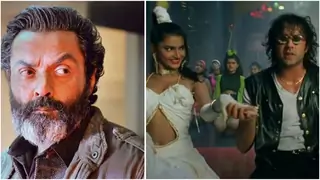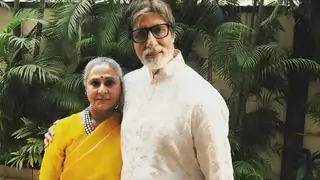Originally posted by: kishore_bhakta
Greetings everyone.
With this small weekend of "freedom" from 80% of routine, I decided to write up a different aspect of music. I have discussed raga, tala, and North Indian classical theory, as well as some filmi musical tidbits. Today, I will look at musical ethics. There are many aspects to ethics to music, but this is one point I will make.
WHAT IS PITCH CORRECTION?
Pitch correction is technique that allows one to correct portions where an off-scale, or incorrect note is played (or sung) originally. Pitch correction can be done in two ways: manual or automatic.
Manual method is using a wave editor and listening to for points where pitch correction is needed. Then the user will select the points off-key points and adjust them accordingly using an appropriate transposition (pitch shift).
The automatic method uses software which looks at the entire wave form of the track and compares the wave points to frequency notes (A=440 Hertz, C, C#, Db, etc.). This is very helpful to the musician, as they do not need to listen to the whole file, but can compare the wave to the desired note and adjust accordingly without the need of transposition.
Does this mean an terribly off-key singer can sound like Lata Mangeshkar? Definitely not! One has to be somewhat gifted to be able to hit the notes nearby. Pitch correction is most useful to fine-tune almost-perfectly sung songs, which miss notes rarely or miss the note by only few microtones that pitch correction won't affect the voice.
What about terribly off-key singers? Pitch correction, as mentioned before, does require some singing knowledge. If you were to speak song lyrics, rather than singing them, you can change the pitch for each musical syllable and make the "speech" into a "song." It'll end up sound very cut-up and the voice will sound artificial, as transponsing voices more than 2 semitones upward or 1 semitone downward can make one sound completely different. In 1972, there was a famous Mukesh album which had old tracks reverbed, but every song in that album was down by a semitone and Mukesh sounded more sleepy, due to the transposition. If 1 semitone can affect a legend's voice this much, than imagine how pitch correcting an incorrect Sa to correct Pa (add seven semitones up).
But is it ethical? Because such a concept is introduced, can you slacken up your riyaaz schedule, since missing a few notes can be cleaned up? Can you still be called a good singer even though you depend on pitch correcting? Should it be used as a condiment used sparingly and not as the main course? Back in the golden days of music, this technology was not there, and singers did many many takes to make sure they were as perfect as possible. If you hear certain songs closely, you can hear off-key points, but they were handled sweetly.
I sure hope many respected members of this forum will "pitch" in some thoughts to keep this thread going 😊
Kishoreji wonderful topic. This is something that really bugs me. I have seen Alka yagnik live and believe me, she goes of pitch and sur many times I always wondered how they did it in recording, until I started singing. I have done a few light music recordings myself. Imet some really good singers there and realised theymake so many little mistakes like we do, like voice breaking, going off key etc and like you said it is all made up with this new technology.
I personally think it is cheating, but then againhow else does Abhijit from Indian Idol or Anuj or Sandeep can ever dream to sing and how would sony make money with these mediocre singers. I also think that might b one reason HR was inisisting on keeping his composition for Vinit in the finals as a recording.
In golden olden days, they did hours of riyaaz to perfect the song and for the youngsters to waltz in now and sing offkey and still sound good in the album is cheating andunethical Ithink. But I am old school



























